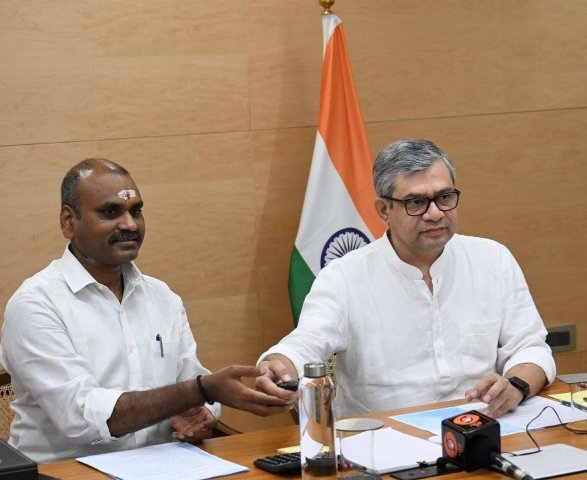Self-Reliance in Defence: Modi vs Congress
Union Minister Ashwini Vaishnaw criticized the Congress for ignoring armed forces' needs and relying on imports. He highlighted the Modi government’s focus on self-reliance, indigenous defence production, and exports. Vaishnaw underscored significant reforms, including appointing a Chief of Defence Staff and achieving self-sufficiency in military equipment production.

- Country:
- India
Union Minister Ashwini Vaishnaw accused the Congress of neglecting the armed forces and making them reliant on imports during their rule. In stark contrast, Prime Minister Narendra Modi has driven the nation towards self-reliance, he stated on Friday.
Addressing reporters, Vaishnaw highlighted that the Modi administration has achieved major milestones in the defence sector through structural reforms, prioritizing indigenous production, and promoting exports.
He cited the construction of over 6,800 km of border roads for the armed forces under Modi's leadership as a significant achievement compared to the previous Congress regime.
Vaishnaw noted that, a decade ago, India had to rely on imports for bulletproof jackets but now boasts self-sufficiency. Indian companies are not only designing artillery guns but also exporting them internationally.
Defence production has now surpassed Rs 1 lakh crore, with equipment exported to 80 countries, he added. The minister reiterated that the BJP works on the principle of 'nation first' and contrasted this with the alleged scams under Congress.
Further reforms, such as appointing a Chief of Defence Staff and introducing better coordination mechanisms, have yielded significant benefits, according to Vaishnaw.
India's self-reliance in defence now meets nearly 70 percent of the armed forces' requirements, shifting away from the dependency observed under the Congress rule.
Vaishnaw also mentioned Prime Minister Modi's initiative to name islands after Param Vir Chakra awardees, unlike the Congress, which often named landmarks after a particular family.
(With inputs from agencies.)










